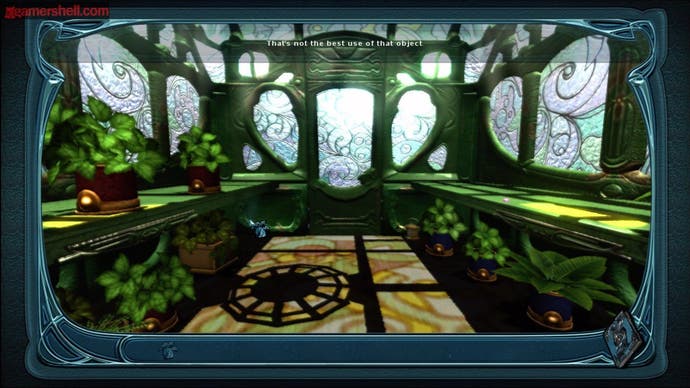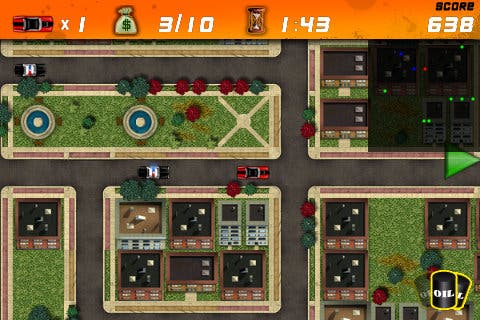Download Games Roundup
Swords! Tanks! Dreams! Crime! Polynomial!
Dream Chronicles
- Xbox Live / 800 Microsoft Points (£6.80)
- PSN / £7.99
The unquenchable popularity of hidden-object games is one of the great modern mysteries of videogaming. Completely devoid of what you might reasonably describe as compelling gameplay, your role as the player is essentially reduced to a prodding monkey, stabbing impotently at the screen until something happens that shifts the story on a notch.
The bizarre thing is how much praise these games are adorned with in the casual gaming community, with talk of "stunning" graphics, "charming" locations and "enchanting" story. Maybe in 1991 it would have been possible to come to such lofty conclusions if you'd never played a LucasArts game, but what we're essentially dealing with here is Myst-lite - and who wants that?
Stripped of the all the interesting explorational and conversational elements of the adventure gaming template, you're forced to tirelessly slog through each of the 18 locations one by one, guiding a sluggish cursor around a static screen, attempting to pick up all the hidden objects and use them in the correct context.

On a PC (or even on an iPad), the close proximity of the high-definition screen, combined with the instant point-and-click controls make sense, but on a home console with a joypad and TV several feet away from you, it's a horribly wonky fit.
Most objects aren't merely hidden, but completely and utterly invisible, to the point where you're forced to click endlessly on everything until, eventually, something is picked up from the gloom. Worse still, because of the finicky detection boxes around each object, you can quite often click on an object and fail to pick it up. Thrown off the scent, you'll only realise much later that you could pick it up after all. Frustration ensues.
The puzzle themselves, too, are usually hilariously basic, or are just drawn out and tedious, like having to play seven piano loops back, one after the other. But the really depressing thing about PlayFirst's spirit-crushing little game is that it'll probably sell enough to result in a deluge of the bloody things, and force us to question the sanity of mankind. Again.
2/10
Crime Spree
- Minis / £2.49

So you thought Crime Spree might be a cheapo Grand Theft Auto, right? Wrong. You need to rewind more than a decade and a half before the original top-down GTA until you're hip-deep in the primordial soup of gaming, back when Rally-X was considered the height of videogame entertainment, for a more apt comparison.
Let's not be too mean to Rally-X, because trundling around a maze collecting flags was entirely acceptable in the eighties. 30 years on there's not quite so much joy to be gleaned out of bombing around city streets, picking up all the money bags and keeping out of the way of the rozzers.
As with Namco's relic, Crime Spree starts off insultingly easy, with just one car patrolling the streets. But every time you complete a level, another car joins the fun, making the process of scooping up the winnings progressively harder.
The real challenge isn't so much the gameplay, but how long you can reasonably tolerate the insultingly basic presentation, and the all-pervading air of having been knocked-up in five minutes by Gameshastra's work experience lad. As an example of how low the standing of Minis games have sunk lately, look no further. You might be prepared to lose a few minutes to Crime Spree were it a free flash game, but at £2.49 it feels like daylight robbery.
1/10








